What is your most common answer when people ask: How are you?
If your answer is “Stressed!”, or “So busy!”, then it’s time to take check and acknowledge the impact this has on our health and happiness.
Even if you don’t outwardly show others that you are stressed, if you are thinking it, and feeling it, then that’s enough to know things are out of balance for you.
This is something I am constantly needing to keep check of in my own busy life as a business owner, which is why I can speak from a place of personal experience!
ACKNOWLEDGE THE EFFECTS OF STRESS:
Stress affects us far more than we give credit.
Often we think of stress as only having an effect on our MIND health, but it doesn’t stop there, and the effects to our physical health can be more damaging and long lasting than we realise.
How constant stress affects you:
- Digestion (our ability to absorb nourishment from our food)
- Energy
- Nervous System
- Skin & Muscle Health (it makes the body use the glucose and amino acids that make up your muscles. Have you ever noticed cellulite increases after periods of stress?)
- Immunity
- Hormones
- Weight (our metabolism changes the way it uses glucose as fuel)
- Memory
- Sleep
Personally, I never fully realised this until a few years ago.
As a former eczema sufferer, I knew the effects stress had on skin, I had seen the power of it personally.
But it was only after I had an accident, and had to go through 4 rounds of surgery, that I really noticed the impact stress had on my recovery and health.
Even though I was resting my body, when I didn’t rest my brain, I could really feel the impacts the next day.

NERVOUS SYSTEM
Our autonomic nervous system (the part you can’t control with your mind) is made up of two parts. Essentially they work in sync, but with opposite functions.
1. Sympathetic Nervous System - “Fight or Flight”:
This keeps us safe, so we respond to danger fast.
It raises our heart rate, and sends the blood away from our digestive system to our muscles, so we can flee. It also releases cortisol (the stress hormone).
While all of this is important when we are ACTUALLY in danger (hopefully for most of us, not too often!), it can have profound effects on our health when it is a regular occurrence everyday.
Our sympathetic nervous systems only concern is “here and now”, not your future health, it’s simply to survive in that moment. So it shuts down all the good things that aren’t needed, and this is where the problem lies when we face stress regularly.
2. Parasympathetic Nervous System - “Rest & Digest”:
This helps us recover.
It slows the heart rate, sends blood back to our digestive system so we get nourishment from our food and metabolise it properly, restores our hormones (including for sleep), and repairs damage to the skin and muscles caused by stress.
When our sympathetic nervous system becomes dominant, you can see it makes sense our body can’t recover.
We end up constantly tired, are more prone to get sick, our skin health is affected, and we often can’t even get a proper nights sleep which is exactly what our body needs!
WANT A COFFEE TO GET YOU GOING?
The cycle of stress and the energy depletion that comes from it often makes people think “I need a coffee!”.
Sorry to tell you.. caffeine is one of the worst things you can do when you are stressed. It stimulates the sympathetic nervous system even more.
Try switching to a green tea for a few weeks, which will still give you a little caffeine, but much lower than coffee, and see how different you start to feel in your energy and anxiety.
Our iKOU “Zen” Green Tea Infusion is a perfect introductory green tea. It is a large leaf from Japan, infused with fruits and flowers, and doesn’t have the bitterness a lot of green tea is known for (especially those horrible tea bags you can find that are the bitter dust from the tea leaf rolling process, the parts closest to the stem. They are enough to turn anyone off green tea, so don't judge green tea on these!)
BREAK THE WORRY CYCLE:
Do you agree, that so much of our stress comes not from ACTUAL events, but from worrying about things that frankly are just in our mind?
Worry is almost always about what we THINK will happen. But just because we think it, doesn’t mean it is happening, or will happen!

- STOP WORRYING ABOUT WHAT CAN GO WRONG, AND GET EXCITED BY WHAT CAN GO RIGHT
- DITCH FEELINGS OF GUILT
- LET GO OF FEAR
- DON’T CARE ABOUT WHAT OTHERS THINK, THIS IS YOUR LIFE
- YOU ARE “ENOUGH"LEARN TO SAY “NO"
EXERCISE & STRESS:
When we are stressed, we often choose high-intensity exercise thinking it will “sweat it out of our system”.
It gets the endorphins buzzing so we often feel good immediately after, but actually exercise is also putting our “Sympathetic” nervous system under load, so be mindful in choosing what is best for you on the day.
This was one of my biggest lessons to learn in my recovery. I got a virus after my 3rd surgery (I was allowing WAY too much stress in my life, and didn’t allow myself to heal and rest) that affected my nervous system. I had constant jabbing nerve pain through my body that also affected how I slept. I felt anxious and exhausted and could barely focus on reading an email.
I was so used to exercising everyday, and pushing myself to my limit regularly, which had always been an outlet for me, and always made me feel better.
But I found, for a time, the greatest gift I could give my body was the deep, healing rest of restorative yoga and meditation. I still kept regular weight training going to keep my strength up, but paced myself, and when I paused the heart-racing cardio efforts, my recovery really sped up.
I think to be honest this shift in my exercise also reminded me in life not to push so hard.
I had a friend recently go through a nervous breakdown, and we were talking about this. She said she had actually found some research that said exactly what I had experienced, so it isn't just me reporting this.
In times of deep stress, cardio exercise is one of the worst things you can do, as you are wiring your system even more.
For high achievers, this can be tough to hear, but it actually shows strength to hold back, so you can be proud of your using your wisdom and listening to your body.
Restorative yoga, tai chi, anything that gets your deep belly breathing going. The healing is in the breath.

DEEP BELLY BREATHING:
The only way we can have any control over resetting our nervous system is through our breath. Our mind cannot control this.
So when someone says “Just relax, stop stressing!”, this isn’t actually possible just be telling yourself to relax with your mind. What they should really say is “Take a few deep breaths and you’ll feel so much better”.
During the day and when you first wake in the morning, 20 deep belly breaths is one of the greatest gifts you can give yourself.
WATCH OUR VIDEO AT THE END OF THE BLOG TO LEARN HOW TO EASILY DO THIS ANY TIME OF THE DAY
SLEEP:
Sleep is when our parasympathetic nervous system really gets a chance to kick in. When you are feeling stressed, honour the importance of sleep and make it one of your biggest priorities.
Bring intention to this by choosing what time you need to sleep by to get 8 hours.
Don’t think you can go straight from screen time to deep sleep either, have a wind down ritual and create a restful sanctuary that makes you feel good when you go to bed. Our cortisol levels naturally start to rise around 2am, so try to get as many hours quality sleep before that time as you can by going to bed earlier.
View sleep as a gift to your body in the same way you do food.

SKIN WELLNESS & SELF-CARE:
Skin conditions and dry skin are not only affected by stress, they also cause us to feel stressed. Irritated skin equals irritated mind.
If you suffer from skin conditions, bringing extra energy to caring for your skin can really make a difference. Just like exercise is needed for fitness results, regular care of your skin is needed to keep conditions at bay.
As former eczema sufferers, Paul and I have really learnt the importance of moisturising every single day. Our "Neroli Calming Face Oil" and "De-Stress Body Souffle" are our two favourites for this.
Self-care rituals are a wonderful stress-management tool, as they care for our body and also encourage deep relaxation and breathing to relax our nervous system.
OUR VIDEO THIS WEEK INCLUDES MY FAVOURITE SELF -CARE RITUALS TO DE-STRESS
I hope this helps you set some goals for yourself this year, to make 2019 the "Year of Wellness”, body, mind & soul.
xx Naomi
My recommended book for this week:
"Rushing Woman’s Syndrome” by Dr Libby Weaver.
As you all know from last weeks blog, I am a huge fan of Dr Libby and the knowledge she imparts through her books.
She writes in a way that shares her wisdom and insights from many years of caring for womens health. I love how she connects physical and emotional patterns and links with the impact on our health.
Her solutions are so practical, but also acknowledge our common roadblocks and self sabotaging patterns common to many women, gently but persuasively guiding us to the path of wellness and enjoyment of mind & body health.
Do yourself a favour, and choose even just one of her books this year for your “Must Read” list!


Naomi Whitfeld is the Founder & CEO of iKOU.
Her passion for inspiring others to live a life of Wellness & Joy shines through in everything she does.
As an intuitive Aromatherapist, Naomi incorporates Mind & Body benefits into all she creates, believing we respond best when we treat as a 'whole".
Winner of the Telstra Business Womens Award for "Entrepreneur of the Year", Naomi has a particular interest in supporting busy women to enjoy rituals of self-care on a daily basis.
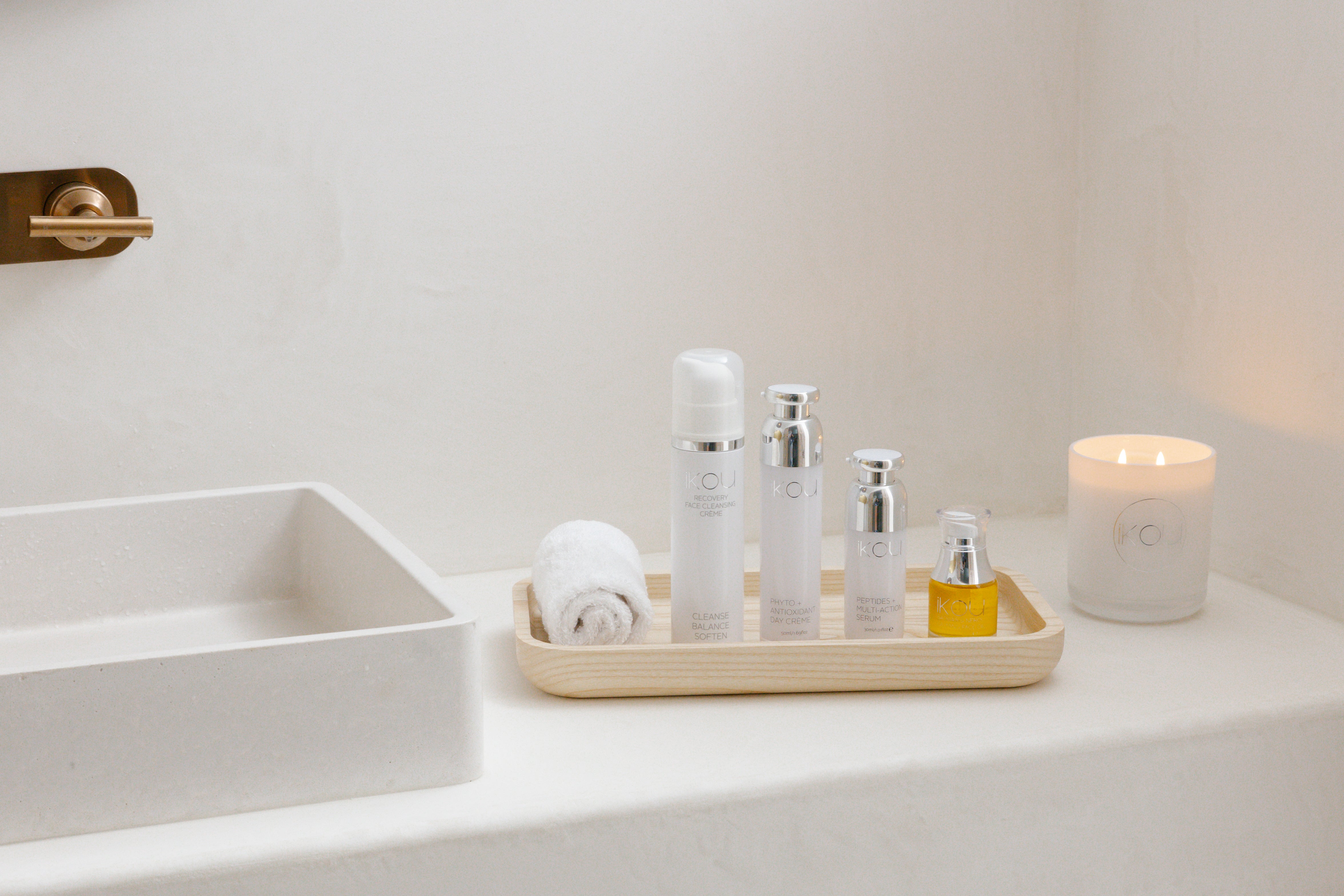
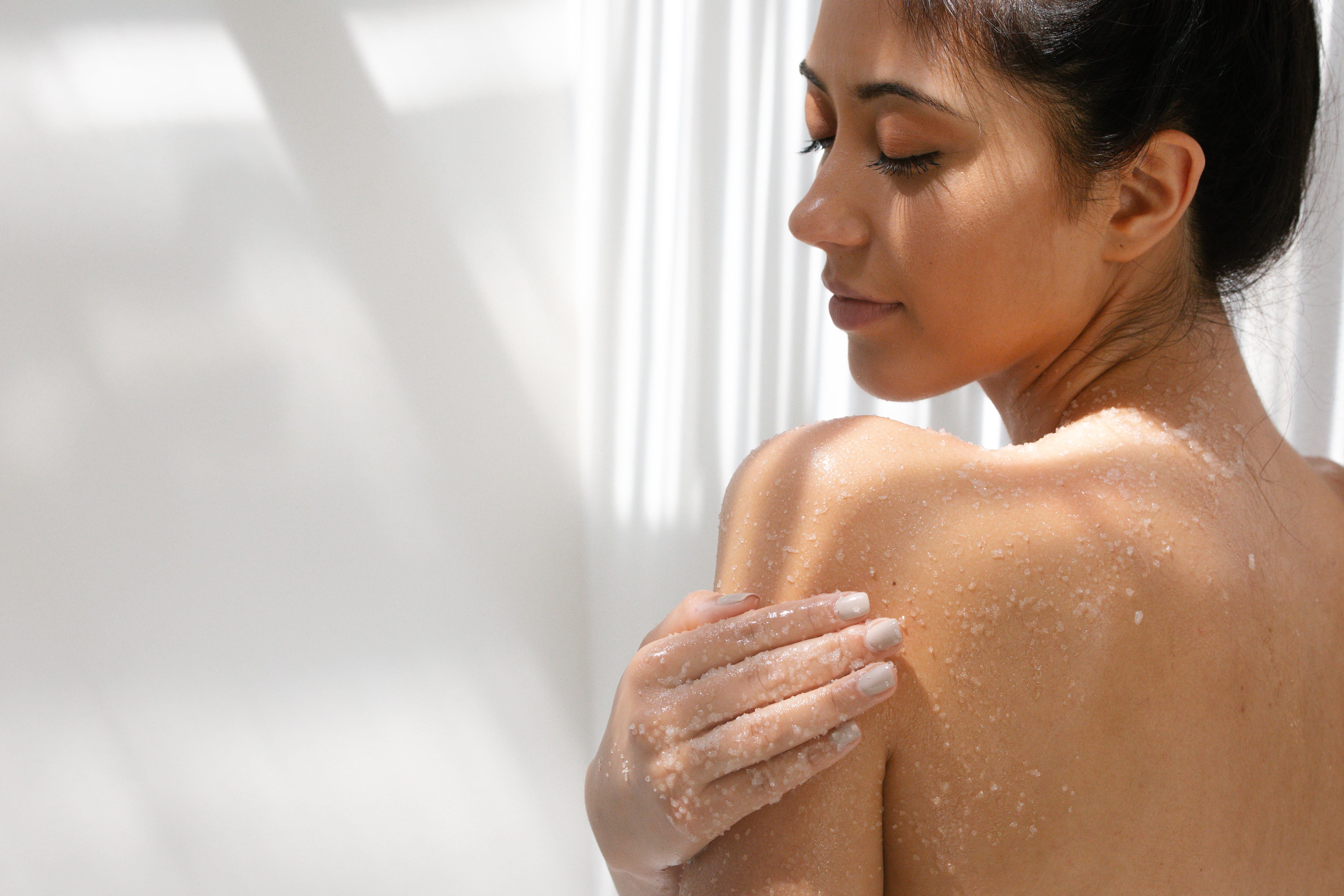
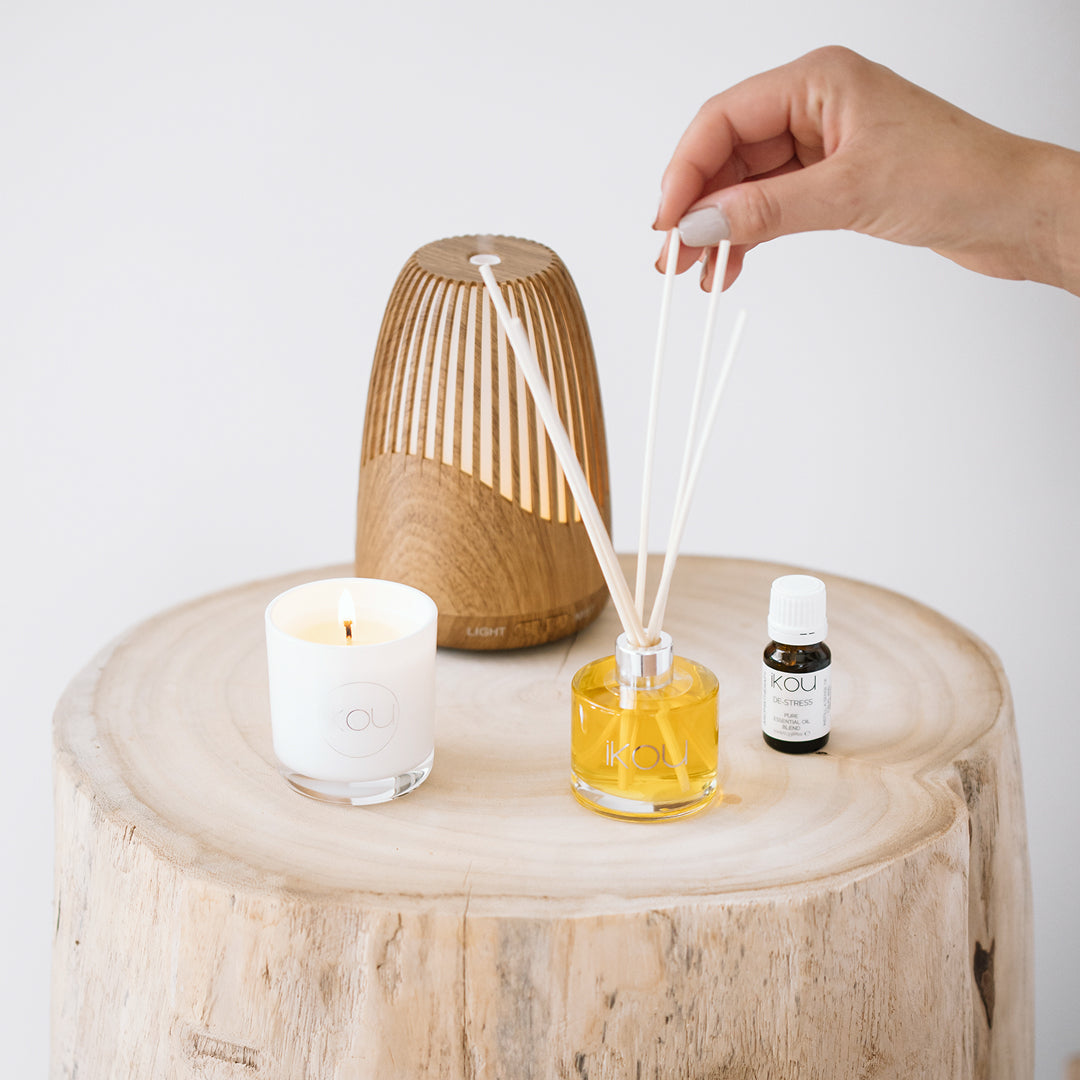
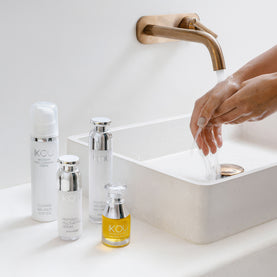

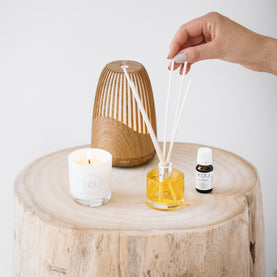



 Copy link to share
Copy link to share
